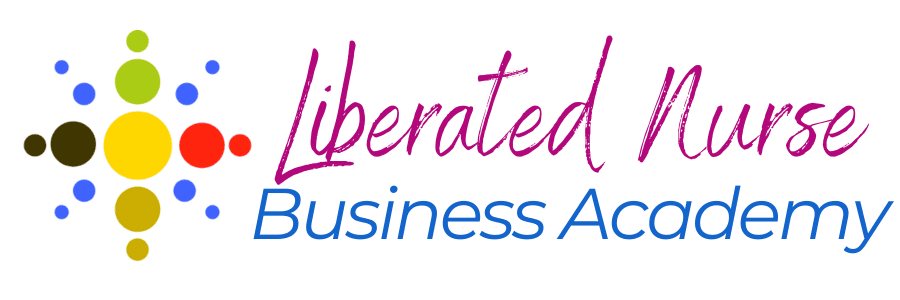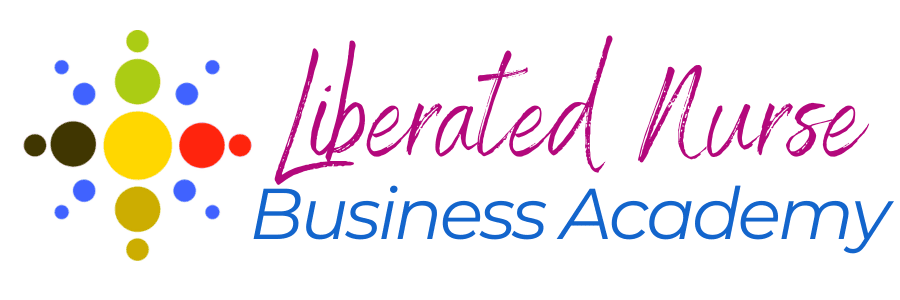Prescribing Trust: The Hidden Impact of Incompatible Business Names in Nurse-Owned Businesses
Prescribing Trust: The Hidden Impact of Incompatible Business Names in Nurse-Owned Businesses

Prescribing Trust: The Hidden Impact of Incompatible Business Names in Nurse-Owned Businesses
By Grant Polachek
Trust is at the core of healthcare services. For nurses, in particular, it forms the core of client relationships. An often overlooked factor that could have an enormous effect is the business’s name. This article explores its effects and impacts on nurse-owned businesses.
Examining the Subconscious Impact of Inconsistent Brand Names
Trust in nursing extends beyond mere transactions; it embodies a sacred pact of care and competence between caregivers and patients. This trust operates subtly, with the compatibility of business names playing a vital role in nurturing it. In an industry where the lives of vulnerable individuals rely on the competence of their caregivers, the implications of business names cannot be underestimated.
Holistic Trust Creation: When creating holistic trust formation, our subconscious minds subconsciously form associations between nursing services and business names to shape perceptions of credibility and reliability in patients who utilize nursing services.
First Impressions Matter: An appropriate business name sets the scene for an excellent first impression that conveys the care patients can anticipate from nursing services.
Emotional Resonance: Consistency in branding creates positive associations for services rendered with compassion.
Positive Impact: Establishing holistic trust through business names aligns patients' perceptions with credibility and reliability, forging stronger bonds between nursing services and patients.
Negative Impact: An inappropriate business name can inadvertently erode trust, raising doubts about the quality of care provided.
Strategies to Overcome Business Naming Problems
Addressing trust deficits strategically is essential in healthcare. Differences in business names can unintentionally weaken the trust relationship between nurses and patients, but proactive healthcare providers can take action to mitigate this challenge.
Transparent Communication: Clearly outline the rationale for choosing your business name, showing authenticity and integrity with the help of tools such as Squadhelp's free tool. Utilizing this resource allows you to explore different naming possibilities that align with your brand values and effectively convey your message to your target audience.
Showcasing Expertise: Display nursing professionals' qualifications, experiences, and capabilities to strengthen credibility.
Positive Impact: Transparent communication about business name choices fosters authenticity and strengthens trust.
Negative Impact: Failure to explain the rationale behind a business name may leave patients wondering about its authenticity and compromise trust.
Navigating Trust in Nursing
Nursing is more than a profession; it's an ongoing commitment. Consistent and suitable business names can help showcase your dedication to patient well-being beyond aesthetic considerations; moreover, it demonstrates your pledge to offer reliable healthcare services without compromise or unreliability.
Professionalism Reinforcement: Establishing a consistent business name shows professionalism and a commitment to ethical nursing practices while guarding against Trust Erosion, which can gradually chip away at patient trust, detracting from nursing services' reputations over time.
Facilitating Patient Recognition: Patient recall can increase with an easily remembered name. A coherent and cohesive name helps foster stronger nurse-patient relationships and builds trust between nurses and patients.
Positive Impact: Establishing a consistent business name demonstrates professionalism and a commitment to ethical nursing practices, enhancing patient trust.
Negative Impact: Inconsistent business names may contribute to trust erosion over time, affecting nursing services' reputations.
Uncovering Incompatible Business Names
Trust forms the core of nursing, a fragile yet resilient foundation. However, a paradox emerges when incompatible business names threaten this trust, leading to unexpected uncertainty.
Negative Associations: Improper names may cause cognitive dissonance among patients, leading them to question the authenticity and reliability of the nursing services provided.
Diminishing Credibility: Trust may be undermined due to confusion caused by mismatched names.
Positive Impact: Properly chosen names that align with patient expectations and create trust can enhance the reputation of nursing services.
Negative Impact: Incompatible business names may lead to cognitive dissonance among patients, raising doubts about the authenticity and reliability of the care provided.
Trustworthy Nursing Services
In nursing, decisions involve a delicate dance between choice and vulnerability. Business names that resonate with customers simplify this decision-making process, shaping perceptions of trust.
Name Recognition and Trust: Patients tend to trust nursing services with names that match their expectations and familiarity, increasing trust.
Heightened Risk Analysis: Uncomfortable names promote patients' sense of risk, necessitating more in-depth evaluation of nursing options.
Positive Impact: Business names that match patient expectations and foster familiarity increase trust and ease the decision-making process.
Negative Impact: Uncomfortable or unfamiliar names may heighten patients' sense of risk, necessitating a more cautious evaluation of nursing options.
Conclusion
Trust is the linchpin of the nursing profession, and the choice of a business name wields significant influence over the bonds between nurses and patients. As we've explored the subconscious impact of inconsistent brand names, the power of transparent communication, and the role of consistent naming practices, it becomes evident that names can either fortify or undermine trust.
A well-chosen business name sets the stage for a positive first impression and fosters an expectation of compassionate care, while a mismatched name may raise doubts and erode trust. In the delicate dance between choice and vulnerability that characterizes nursing decisions, business names that resonate with patients simplify the process, shaping perceptions of trust and familiarity. Trust is the currency of life in nursing, and nursing services have the capacity to cultivate it, one thoughtfully chosen business name at a time.
In a world where trust can be fragile, nursing services have the power to nurture it with each interaction. By comprehending the psychology behind trust deficits and upholding naming practices, nursing services can bolster their commitment to providing trustworthy patient care. These naming practices create confidence, empathy, and superior treatment throughout nursing services, culminating in an exceptional care experience that patients can rely on. In this symbiotic relationship between trust and business names, nursing services hold the key to fortifying the bonds between caregivers and patients, ensuring they remain steadfast and unshakable.
For a free business name generator, visit Originality.AI.


